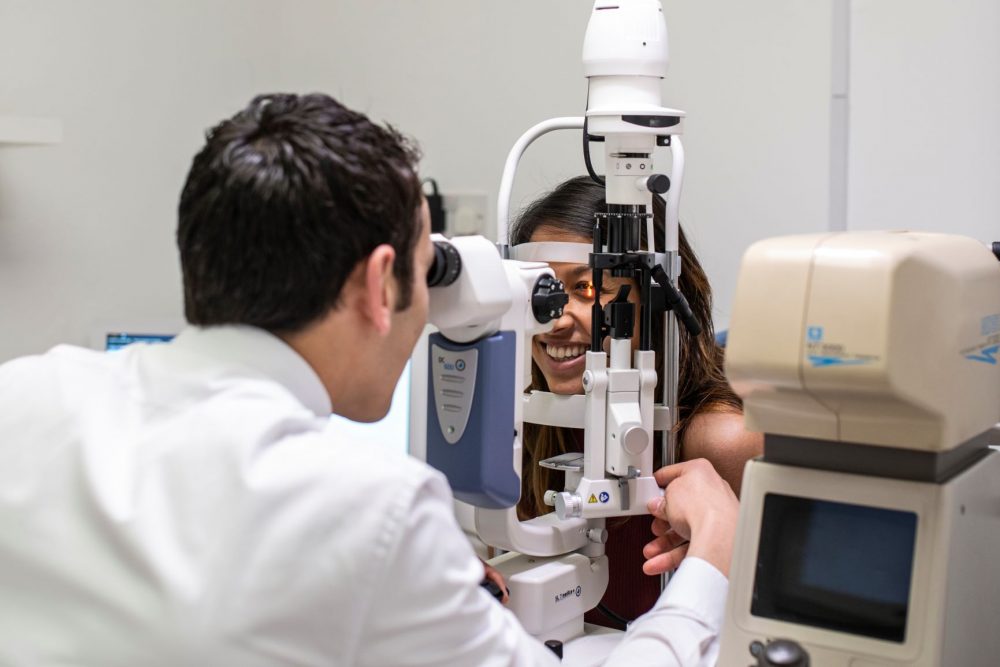PARENTS are being urged to be aware of the effects of long screen time on their children’s health, in particular their eyes.
A senior optometrist has warned that although the timescale is too short to see if the increased electronics exposure time at home has impacted children’s eye sight, parents need to be aware of the symptoms.
William Wilkie, BSc, MCOptom, is urging parents to take their children for an eye test if they are concerned.

Mr Wilkie has said he has seen incidence of complaints about eye strain, headaches and sensitivity to light in our practices in the past year.
Mr Wilkie a Senior Optometrist at Wilkie & Rider said: “Given the constantly increasing amount of time everyone spends on mobile devices in an interconnected world, it might be argued that this is hardly surprising, but the only way to be sure is for parents to take their child for an eye test.
“The sort of symptoms to look out for include: An eye appearing to drift inwards or outwards, known as a squint, difficulty concentrating, behavioral problems, headaches, sitting too close to the TV, frequent eye rubbing, headaches, sitting too close to the television and frequent eye rubbing.”
Fortunately, pre-school eye examinations are back on track after some initial disruption in the early part of the pandemic and this form of screening is invaluable in detecting issues before they develop into major eye health problems.
Mr Wilkie added: “With very young children, the brain effectively hides eye problems from them and if they have one good eye and one bad, they will work with the best image.
“The great thing about pre-school screening is that it checks both eyes together to achieve true results.
“It is inevitable that some families will have slipped through the screening net, either because the parent was unable to take the child or because the child was unwilling to go.
Parents in this situation should make an appointment at the earliest opportunity with their local optometrist.”
One of the dangers of the home classroom is that school work successfully undertaken and completed on a laptop can be rewarded with more screen time, such as a “break” for gaming or YouTube viewing on a tablet.
There are also concerns that for children completing screen time they are rewarded with a break for more screen time for Youtube or using other devices.
Parents are being urged to replicate what would actually happen in a class by organising different acticities which entail different focual lengths.
This includes non-screen activities with time outdoors being highly reccomended so eyes can adjust and recalibrate on wider panoramas.
Mr Wilkie concluded: “It is also worth remembering that, this unusual year apart, research shows that around 20% of school-age children have an undiagnosed vision problem, so it is never too early to have a sight test.
“This is particularly the case if you notice that your child has developed a squint, or if there is a family history of this kind of eye abnormality.
“Parents should monitor their children’s screen time and make sure that they take regular breaks.
“Good eyesight is crucial in making sure children develop to their full potential, both at school and socially. It’s worth making every effort to ensure that they can.”

